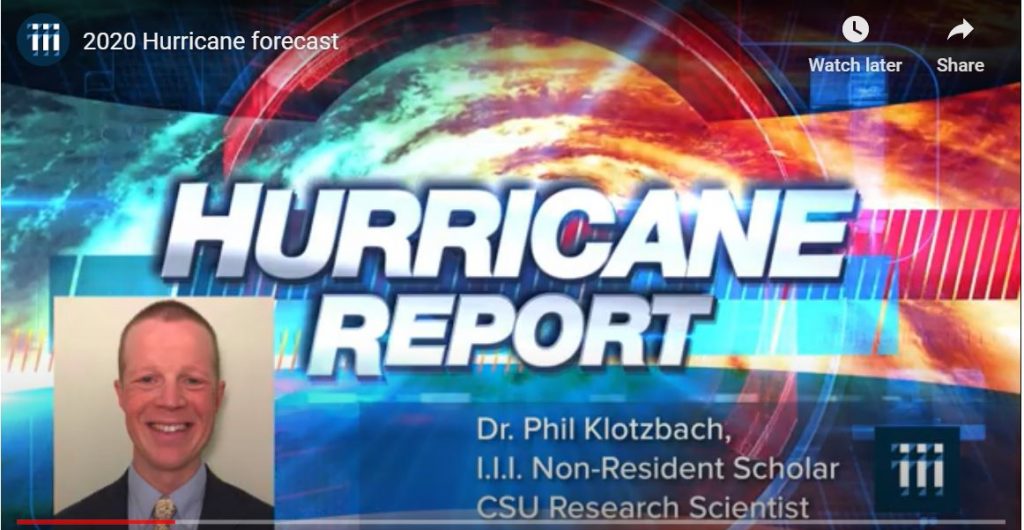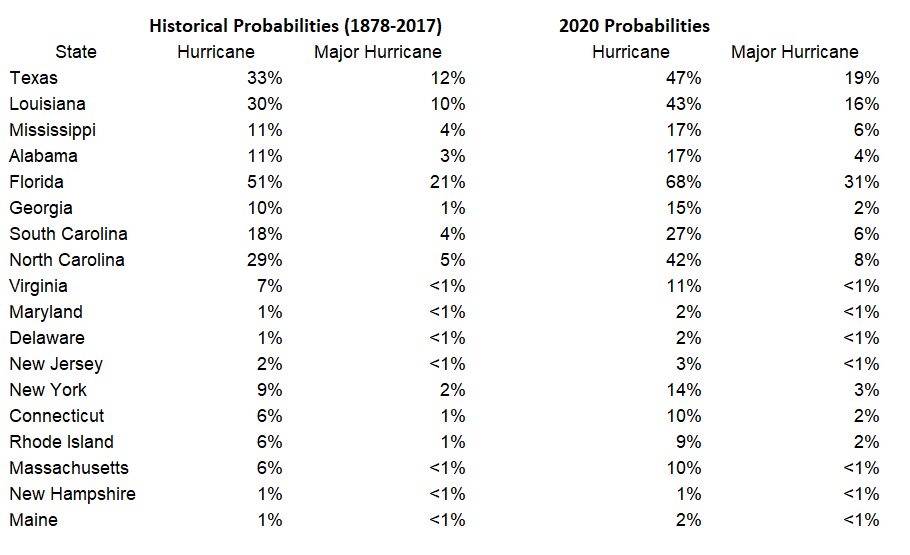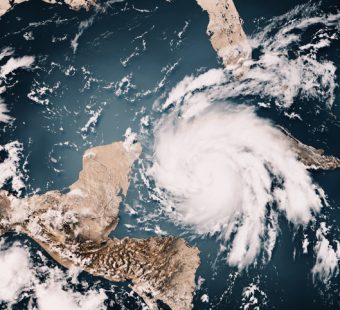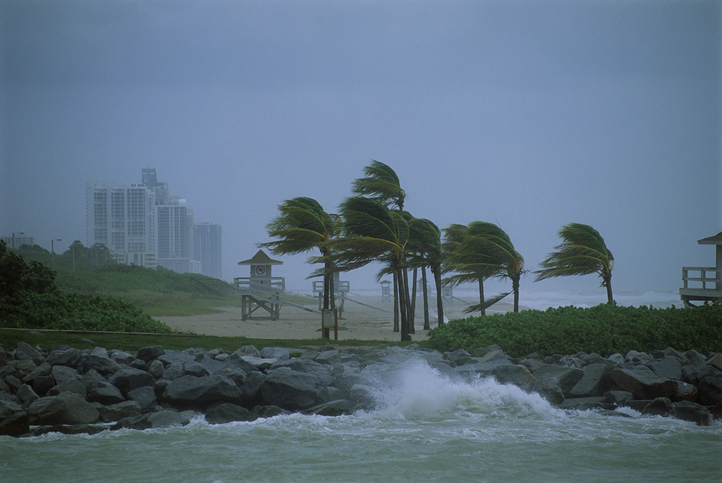
2020 hurricane season projected to be ‘above normal’
The 2020 Atlantic hurricane season activity is projected to be “above normal,” according to Triple-I non-resident scholar Dr. Phil Klotzbach.
Dr. Klotzbach, an atmospheric scientist at Colorado State University (CSU), and his team have issued an early forecast of 16 named storms, eight hurricanes, and four major hurricanes for the year, with above-average probability for major hurricanes making landfall along the continental United States coastline and in the Caribbean.
A typical year has 12 named storms, six hurricanes, and three major hurricanes. Major hurricanes are defined as Category 3, 4, and 5 storms, where wind speeds reach at least 111 miles per hour.
The forecast is based partly on the fact that El Niño conditions are unlikely this summer and fall.
“El Niño is warmer-than-normal water in the Central and Eastern Tropical Pacific,” Dr. Klotzbach said. “When it occurs, it tends to increase upper-level westerly winds that tear apart hurricanes when the try to develop.”
The chart below shows 2020 hurricane probabilities for 18 coastal states.

A lot can change between now and the peak of the season though, so an updated forecast will be issued on June 4.
As is the case with all hurricane seasons, coastal residents are reminded that it only takes one hurricane making landfall to make it an active season for them. They should prepare the same for every season, regardless of how much activity is predicted.
For the full forecast report click here: http://tropical.colostate.edu
For information on hurricane-proofing your home and business, check out the following articles:
Flood policy renewal period extended
The Federal Emergency Management Agency (FEMA) announced it is extending the grace period to renew flood insurance policies from 30 days to 120 days to help policyholders who may be experiencing financial difficulties due to the coronavirus pandemic. The extension applies to National Flood Insurance Program (NFIP) policies with an expiration date between February 13 and June 15, 2020.
Said David Maurstad, the FEMA administrator who oversees the NFIP, “We want to make sure that policyholders don’t have to worry that their policy will lapse during the spring flood season or into the start of hurricane season.”
Posted on April 1, 2020



